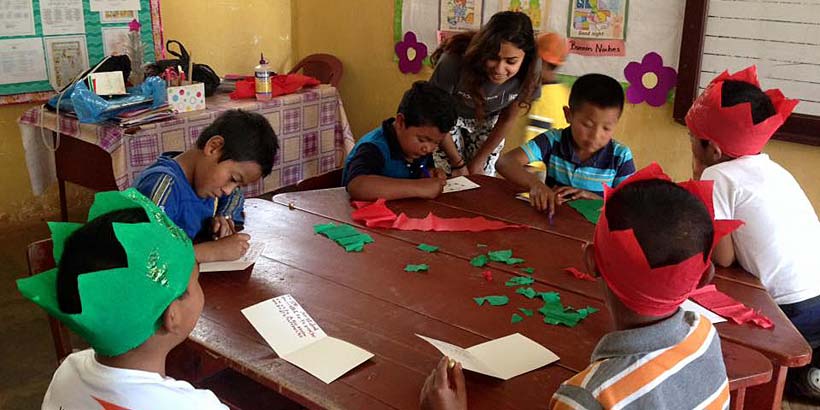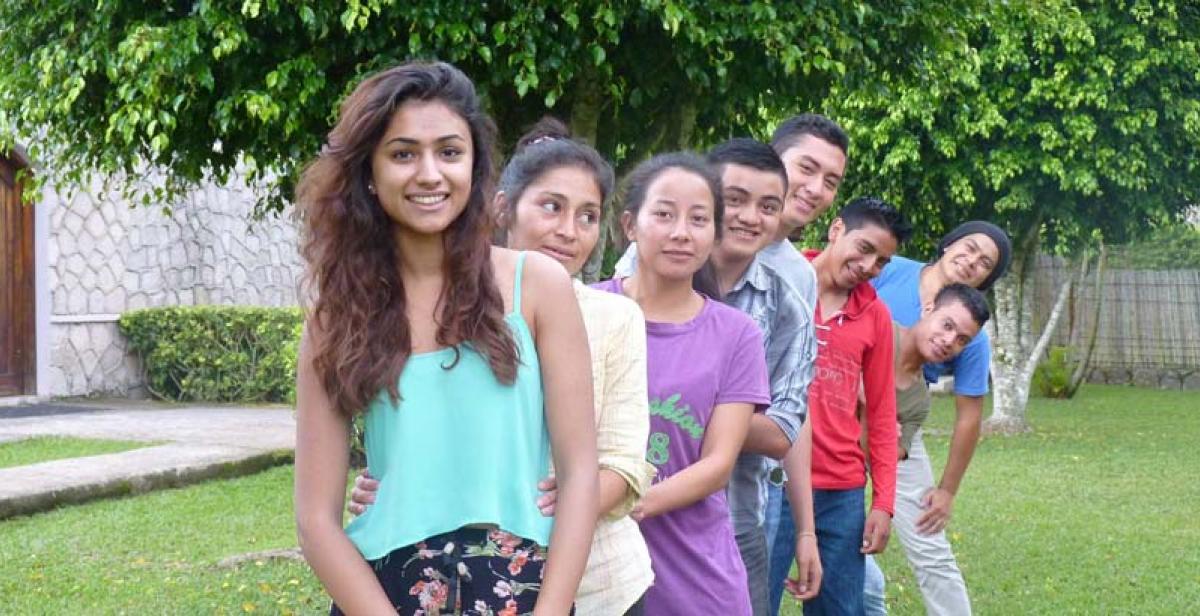For International Volunteer Day, on 5 December, our ICS volunteers in Honduras wrote a series of blogs reflecting on their experience and the importance of volunteering.
It is not sufficient to say that volunteering in Honduras has been a learning experience thus far. The phrase does not do justice to the act of throwing yourself into a completely other world, which is what Honduras is in comparison to the England I call home. The stories I have heard over the past few months about the government, the lined up bodies I see on the news, and the mentality of the people of the small, safe village of El Carrizal, seem to be taken out of a different reality. That comparison of one’s reality to another’s is the foundation and basis of the importance of volunteering here.
In my opinion, the root of inspiration grows from education. The political situation of the country, and the amount of disillusionment the people feel towards their government, makes the scope for change and progress a distant concept. However, I believe that with the right examples and information, the people of this country can learn to make their own successes, however small or large they may be. Many success stories come from a small pinch of inspiration, sparked by another’s success or another’s reality. This is what we, as volunteers here, hope to spark in the hearts of those we work with. Volunteers who come here show the people that there is a chance for a more stable political situation, a chance for better health care and a chance for education. The chance is there if the people are willing to work for it, and that is the motivation we come to ignite. The effects our mere presence as examples have had so far on our national volunteers is proof enough that people can inspire, and be inspired in return. We watch them filled with pride when they are able to form sentences in English, and we applaud how much their confidence has developed when giving a presentation. The essential life skills we impart through example and teaching are the image of the necessity of programmes like ICS. If volunteers did not come to Honduras, that other reality with more opportunities and skills, would feel completely unattainable and too distant, to those who want to work for it.
The promotion of the volunteer culture here is another reason why our presence here is vital. It is the hope that the mob mentality applies to volunteering; the more people you see doing something, the more likely you are to join in. This applies for volunteers who come from elsewhere, but more so national volunteers. Their importance can be found in the already existing spark, and their willingness to put the hours into making their reality a better one, in the best way they can, while encouraging others to be part of their cause too.
The constant sense of gratitude I have developed since being here is another reason for our importance in Honduras. I am thankful every day for our health care system in the United Kingdom, for our education, our freedom of expression, and much more. Being in a country where people do not have the opportunity to feel safe has given me a new perspective. I am now equipped to take this gratitude back to my home, and share it with others so that there are more people taking advantage of the abundant opportunities we have. The importance of volunteers here in Honduras lies in our ability to broaden horizons both ways; while we are here as well as when we return.

From the very beginning, our partner organisation World Vision struck me as a very strict organisation, who relies largely on the image they portray to the world. In all honesty, this struck me as something I did not necessarily want to be a part of due to the heavy emphasis on rules and regulations, and image. However, after working alongside various members every day, I have come to realise my initial opinion was misguided. I now understand that in order for World Vision to be able to support so many communities across the world, there has to be a clean and strong structure to their workings across the board. The same holds true with Progressio. The rules we, as volunteers, have to abide by, are put in place for our safety and coming here with that view in mind has made for a fairly smooth experience with both organisations.
The first few encounters with World Vision staff were filled with bits and pieces lost in translation, and not enough information given both ways. This has since been rectified, by opening the lines of communication. Volunteering with a Honduran organisation is always going to be difficult because it could be argued that British people work differently, and when there is a problem or a delay, hindsight has a way of making us believe it could have been avoided. For example, it is very easy for us to question why materials are not ordered in advance, for us to begin work as soon as possible. However, we do not have control over the administrative processes and thus cannot criticise what we do not know. I have found it is best to put my faith into their workings and trust that they can create success here in El Carrizal, with our help. Despite being able to communicate more with World Vision and its staff, I would still appreciate more involvement of British volunteers in their meetings regarding the project. Nonetheless, it has been interesting catching a glimpse of how such a large organisation works in Honduras, and I feel proud to be a part of the project and what it stands for.
Written by ICS Team Leader Junaina Pirbhai



